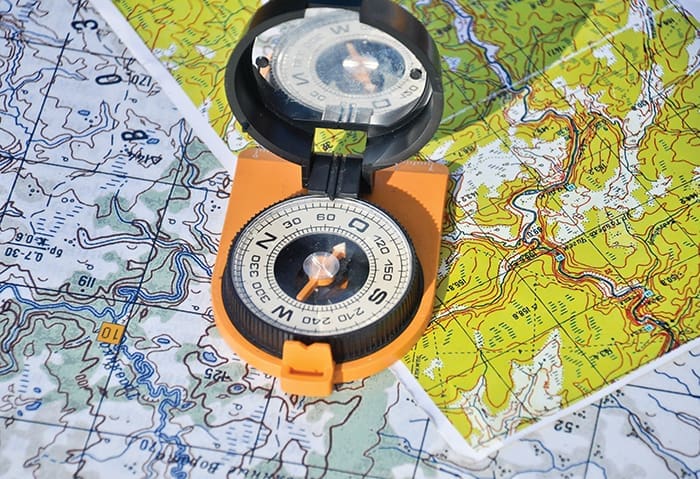Student LifeRoadmap to college resources
Vicki Nelson

Does anyone use a map anymore? We’ve all come to rely on our GPS, and for some of our children, an actual map might as well be an antique! But I love maps. A map gives me some sense of orientation. When my GPS says “recalculating” (always with attitude, I swear), I know I’ve gone off course, but I don’t know why. I don’t know where I am in relation to where I need to be, and I don’t know what else is around me that may be helpful.
Mapping success
The experience of heading off to college, and being in a completely unfamiliar environment, can be overwhelming. The sooner your student knows their way around, the better — it will help them feel more in control. With no GPS for this task, it’s time for a map.
Creating their own personal map of campus starts with figuring out their destinations so they're not wandering aimlessly. Your student should ask themselves three questions:
- What do I need? (To go to class? To eat? To play? To get a tutor? To talk to my professor?)
- Where is what I need located?
- How do I get there?
A roadmap helps us find our way — even when our GPS isn’t working. Encourage your student to find their path. They’ll be better prepared to enjoy the college journey.
Don’t underestimate the value of an actual map. Your student can find one on the college website or at the Admission Office or Student Center. If it’s available online, suggest they spend some time with it even before arriving on campus.
Using the map as a guide, your student can set out to find the three important types of resources that will help them feel comfortable on campus and primed for a successful start to college: places, people and hidden gems. Here’s a strategy to share with your new college student!
Places
- Study the campus map, even before arriving on campus.
- Make some time in the first few days at school to walk around campus. Take a new friend with you. Use your map to plot where you’re going and see where things are in relation to each other.
- Do a dry run. Look at your schedule and find your classrooms the day before your class. Follow your schedule so you know how long it will take to get from building to building.
- Create a list of places you might need at some point. Find the library, tutoring center, bookstore, copy center, health center, fitness center, registrar’s office, career services, tech center, public safety, counseling center. Create a scavenger hunt! Mark them on your map.
- Pay attention to landmarks that will help you get your bearings.
- Attend events and each time you go to something, make note of how you got to the venue.
People
Finding the right people on campus is even more important than getting to the right place at the right time.
- Make a list of the people you may need to see and find their offices before you need them. Check in on your professors, your advisor, tutors, your friends’ dorms, reference librarians, your Residence Director or the Dean.
- Every time you attend an event, find out who, or what group, was in charge. Introduce yourself if you have a chance.
- Use the people you meet to lead you to other resources. Ask everyone, “What’s one place, or who is one person, that I should find on campus?”
Hidden gems
A hidden gem is anywhere that you love and enjoy spending time. They may not be on the map, but every campus has them if you look. Ask other students and faculty members, “What’s your favorite place on (or off) campus?” Find your special place. It might be:
- A quiet lounge or out-of-the-way corner of the library for studying, thinking or napping.
- A walking or bike trail.
- An art gallery or museum.
- A music practice room or empty concert hall.
- A chapel or meditation room.
- A coffee shop.
- A local park.
- The town library.
A roadmap helps us find our way — even when our GPS isn’t working. Encourage your student to find their path. They’ll be better prepared to enjoy the college journey.
Join Our College Parent Newsletter!
Get stories and expert advice on all things related to college and parenting.
Vicki Nelson has more than 35 years of experience in higher education as a professor, academic advisor and administrator. She also weathered the college parenting experience successfully with three daughters. She established her website,
College Parent Central, to help college parents achieve the delicate balance of support, guidance and appropriate involvement as they prepare for and navigate the college journey with their student. Vicki also serves as co-host of the
College Parent Central podcast.

